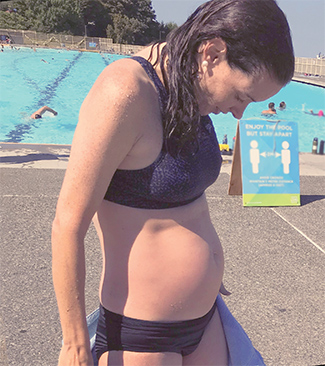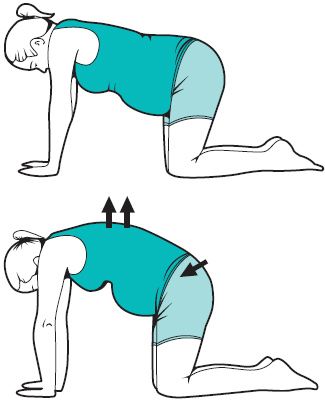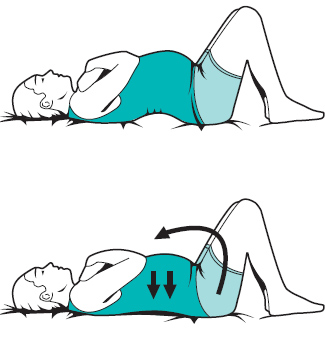Physical activities

![]() Physical activity is good for your pregnancy. If you’re not used to being active in your everyday life, start slowly and gradually add more.
Physical activity is good for your pregnancy. If you’re not used to being active in your everyday life, start slowly and gradually add more.
Photo: Marie-Hélène Giguère
Being physically active during pregnancy is good for your physical and mental well-being. Women who are active during pregnancy cope better with the physical changes of pregnancy, have more energy, and are less short of breath.
Practicing regular and varied physical activities throughout pregnancy is beneficial and safe. It prevents and relieves constipation, eases back pain (see Discomforts of pregnancy), and prevents certain pregnancy complications, such as gestational diabetes (see Gestational diabetes). Better physical fitness may also help you recover more easily after giving birth.
Being active day to day
Physical activity, even in small quantities, is good for your pregnancy! If you’re not used to being active in your everyday life, start slowly and gradually add more. Getting around on foot, going for walks, and playing with your kids are some of the activities you can work into your daily routine.
Pregnant women can aim for a total of 150 minutes of moderately intense physical activities per week, spread over several days. Moderate intensity means you can talk while exercising, but you can’t sing.
Choice of activities
Choose your activities based on your fitness level and what you feel like doing. You can continue many of the activities you enjoyed before becoming pregnant. However, you may have to adapt some of them depending on your stage of pregnancy. For example, you can reduce the intensity, or change certain movements.
Sports like power walking, swimming, aquafitness, stationary biking, and snowshoeing are examples of activities you can do. You can also add strength and mobility exercises (see below Examples of mobility exercises), yoga, and gentle stretching to your daily routine.
Examples of mobility exercices
Round back stretch

Pelvic tilts

Illustrations: Luz design + communications
Fatigue and some discomforts of pregnancy may prevent you from being as active as you like, especially at the beginning and end of your pregnancy. Listen to your body, exercise less intensely, or get some rest, then resume physical activity when it’s comfortable for you.
A few precautions
Don’t worry—exercise doesn’t increase the risk of miscarriage or of problems for your baby. Your prenatal care provider will tell you if your health situation prevents you from doing physical activities.
However, scuba diving, sports and activities that can expose you to falls, physical contact, impacts, or injury are not recommended during pregnancy. It is also best to avoid sit-ups and other similar movements, as well as activities in hot, humid environments or at high altitudes (> 2,500 m).
![]() Listen to your body and respect your limits.
Listen to your body and respect your limits.
If you feel discomfort during physical activity such as shortness of breath, urinary leakage from effort, or a sensation of heaviness in the vagina, don’t hesitate to change activities or ease off on intensity. You can also ask your prenatal care provider for advice in these situations, or if you don’t feel capable of participating in physical activity.
Good to know...
Exercise raises your body temperature and makes you lose water by sweating. It’s important to hydrate properly before and during physical activity (see Drinks).
Women athletes who wish to continue training intensively during pregnancy should do so under the supervision of a physician.
Miscarriage: A spontaneous abortion, which can have a variety of causes (e.g., a deformity or disease).


